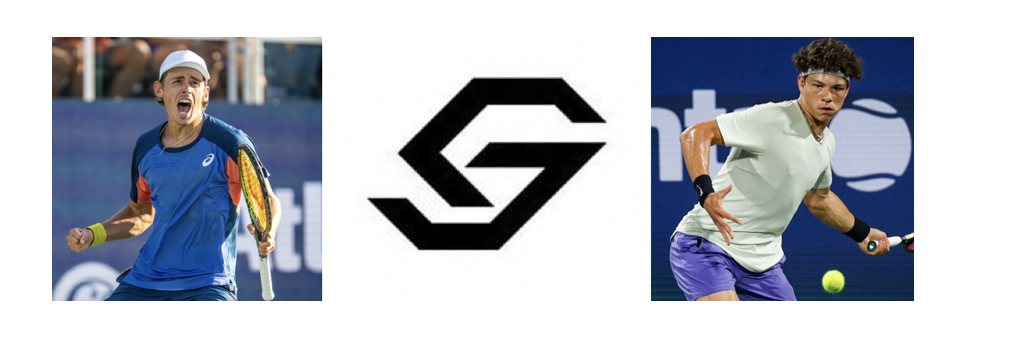It will not go down as one of the best tennis matches of the year. It was not even the best match of the day. In fact, it cannot even claim to have been the best match taking place at Melbourne Park at its particular moment in time.
But that’s okay, because Rafael Nadal’s 6-2, 3-6, 6-7(2), 6-3, 7-5 win over Tim Smyczek in round two of the Australian Open wasn’t really about the tennis.
For Nadal, it was about persevering through not only scoreboard adversity, but also physical turmoil. The 14-time Grand Slam champion is not unaccustomed, of course, to dealing with a fragile body. But what befell him on Wednesday night was not a knee issue, a wrist problem, or a balky back. It was an unforeseen beast: some kind of sickness so energy-sapping that Nadal struggled to explain it.
“I felt, I don’t know,” he stated in his press conference. “At the end of the first set, I start to feel my body very bad, very tired. I don’t know. I was worrying (like) crazy. Then when I was serving for the third, (I) almost throw up. Was (a) terrible feeling, no?
“In terms of feeling bad on the court, yes,” Nadal added when asked if this was one of the toughest wins he has ever pulled off. “Probably, yes. I was close to not continue because I felt that I was very dizzy…. I suffered too much on court for three hours and a half. I was suffering a lot. Too much.”
Too much? No. Enough to trail Smyczek by two sets two one? Yes.
Consistently playing better from behind than from ahead, the 2009 Australian Open champion limped into the fourth set after compiling a combined 17 winners and 30 unforced errors in the second and third. Set two alone watched Nadal stumble to a mere two winners and 14 mistakes. Despite obviously never feeling close to 100 percent, however, he came up with all the answers to questions asked by both his own health and an opponent enjoying the match of his life. Nadal reduced his error count in the fourth to just six in nine games and he fired 15 winners compared to nine errors in the all-important fifth.
“All during my career I [have been] able to find solutions for tough moments,” the former world No. 1 assured. “I [have been] able to win matches where I was in trouble.”
For Smyczek, who had never experienced a moment or match quite like this one, it was about handling nerves in uncharted territory. Thankfully and perhaps unexpectedly given the situation, Nadal won this showdown late in the fifth set more than Smyczek lost it. Rarely is that the case for a player ranked outside the top 100 who had never previously performed on any of the four biggest courts in the world. Smyczek had never been on Rod Laver. Not once on Court Philippe Chatrier. Zero times on Center Court at the All-England Club. A stranger to Arthur Ashe Stadium.
Yet his level never noticeably dipped. Smyczek’s winner-to-error ratio was +5 in the third, the fourth, and the fifth. As the finished line approach, his undoing was no fault of his own. Nadal successfully served to stay in the match at 4-5 in the finale by putting in four first serves, striking two backhand winners, and coming up with one his largest forehands of the day. The third seed set up break point at 5-5 with a backhand pass and an on-the-run cross-court forehand before converting it with a deep backhand return.
“When he was kind of doubled over I could see he was really hurting,” Smyczek commented. “I started to believe that I really had a chance and could get it done. But he turned it up to another gear. That’s why he’s been one of the best for years and years…. I mean, (I’m) very happy with the way I played. I didn’t really struggle with nerves too much. I think that’s the longest I’ve sustained a level like that. Throughout my career I’ve had flashes like that, but definitely one of the positives I’ll take (is) being able to sustain that.”
But Smyczek’s name will be remembered for something else, because this nail-biter was also about sportsmanship. With Nadal attempting to close out the match at 6-5, 30-0, a fan screamed during a first serve that was hit well long. It was Smyczek–not the chair umpire–who gave Nadal another first serve.
The incident:
[youtube=http://www.youtube.com/watch?v=NJfXLzfFNzA]
“I thought it was the right thing to do,” Smyczek said in typically understated fashion.
As cruel fate would have it for the qualifier, he lost that point on a missed first serve return then reeled off three straight points to reach deuce. Would Smyczek have won the 0-30 point then broken Nadal with those three ensuing points to even the match at 6-6? It is likely, one would think, that Nadal would have played with a greater margin for error from 30-15 up instead of 40-0 and still managed to serve it out for victory. But we’ll never know. The only thing we know unequivocally is that Smyczek would have had better chance to break serve in the biggest game of his career had he not granted his opponent a first delivery.
“What he did in the last game…,” Nadal reflected in his on-court interview, “not a lot of people will do something like this at 6-5 in the fifth after four hours.”
Not a lot of people could do what Nadal did, either. So for that, congratulations to both.


Rafa started to practice around 19 minutes ago
Listen to the crowd at the practice court
https://vine.co/v/OIIUEIu1F2v